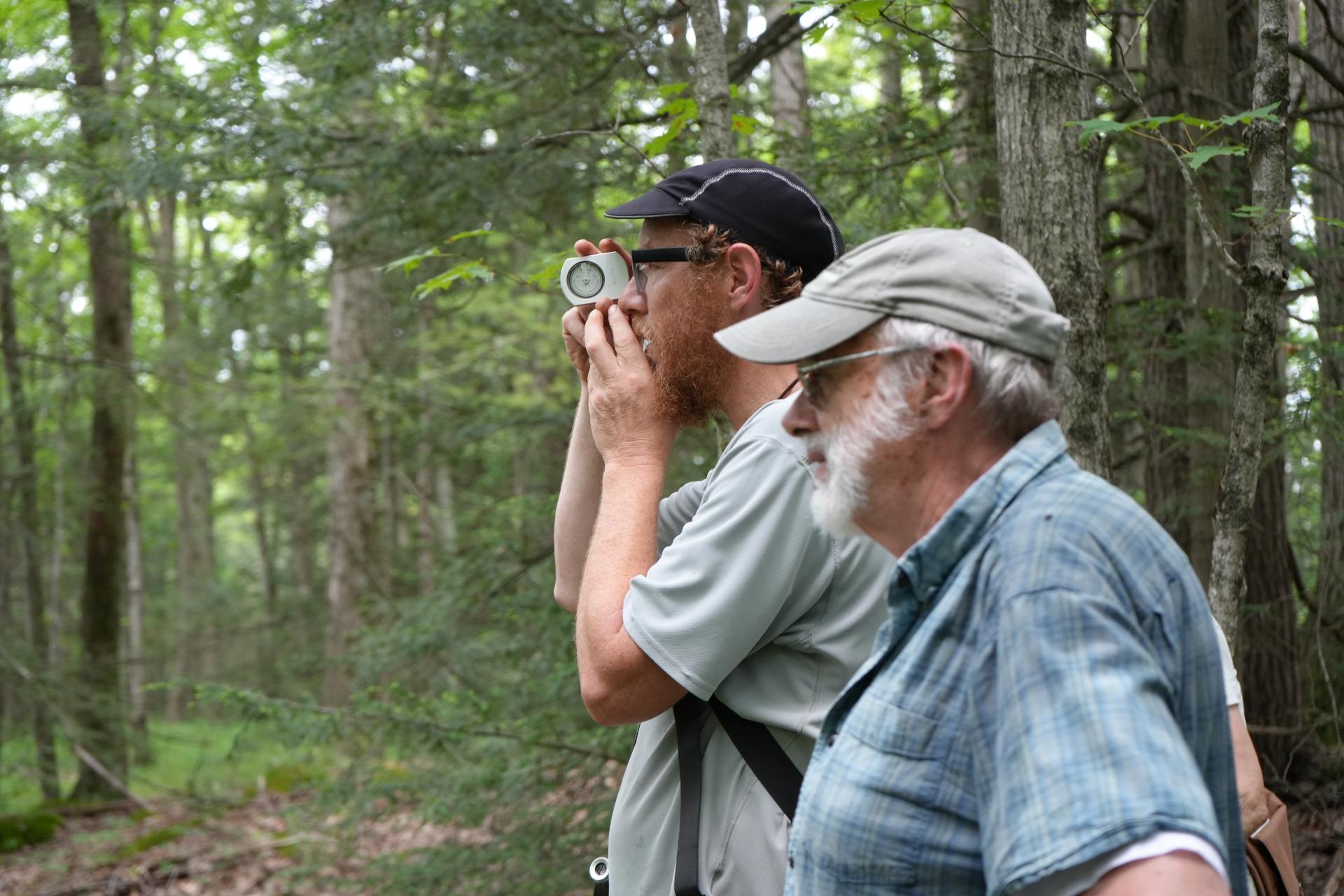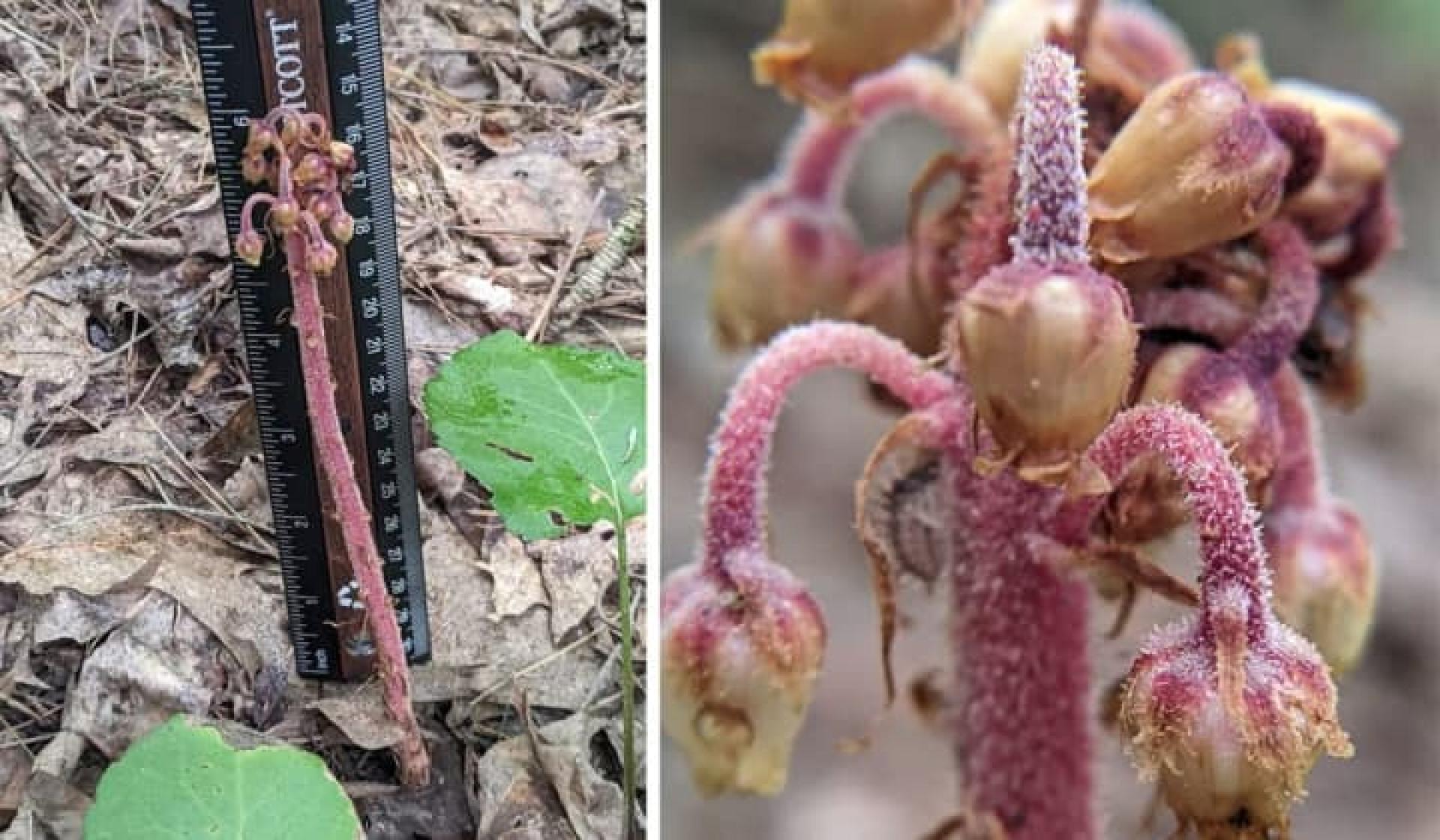You are here
Horticulture Graduate Makes a Discovery for the Record Books
Horticulture Graduate Makes a Discovery for the Record Books
A 2023 graduate of Berkshire Botanical Garden’s Horticulture Certificate Program has been credited for what one state botanist has called an “extraordinary” discovery.
Syke van der Laan was on what he described as a leisurely walk in the woods with his family in southern Berkshire County on July 5, when something curious caught his eye.
“It was a little red plant, about eight inches tall and no leaves to speak of and just this red stalk with these dangly flowers, and I was like, ‘What is that?’” Syke told us. “First, I posted it on a Facebook group, and somebody pointed out to me that it had never been seen before in Massachusetts.”
MassWildlife’s State Botanist Robert Wernerehl and retired MassWildlife Biologist Tony Gola met Skye on site and confirmed the plant was the first record in the state of pine-drops (Pterospora andromedea).
“The discovery of a new native plant here in Massachusetts is extraordinary,” said Wernerehl. “We have more active professional botanists per square mile than almost any other state, so these types of discoveries are rare — yet they do happen.”
We extend our congratulations to Syke, a self-described amateur botanist from Albany, N.Y. Syke said enrolling in the Horticulture Certificate Program in the fall of 2022 marked a critical life change after having become burned out from a 30-year carpentry career. He now works as a trail steward for the town of Bethlehem, N.Y.
He credits his keen eye for rare plants to the training he received through BBG. Following his graduation from the Horticulture Certificate Program in April, he attended BBG’s spring wildflower field study in May and natural plant communities field study in July, both led by the ecologist Ted Elliman.
“It all influenced me greatly,” he said. “I kind of rediscovered my former passions. And after that first field study with Ted, it just got me really interested in seeing what was out there. I kind of got excited about finding rare plants.”
Rare orchids and yellow lady slippers had been among his more noteworthy finds until he came upon the pine-drops, a plant most common in the Rocky Mountains and listed as Endangered in New England.
Native Plant Trust describes pine-drops as “a nonphotosynthetic, parasitic plant that obtains nutrients from its host via mutualistic fungal hyphae that form connections between the roots of the parasite and its host plant. In New England this species is represented by a few populations each in New Hampshire and Vermont, in coniferous or mixed woods over limestone or clay.”
The Trust will soon add “Massachusetts” to that list of locations.
In a press release about the discovery, MassWildlife said it’s unclear whether more pine-drops exist in the state or why they went undetected for so long.
“The pine-drops prefers dry pine forests, and we have plenty of that,” said Wernerehl. “We’re grateful to the sharp eyes and careful observations of naturalists like Syke that help us expand our understanding of biodiversity in the Commonwealth.”
Syke said he’s on the lookout for more pine-drops.
“Finding another one in the state would be just as exciting,” he said, “because now we know it’s there. So trying to figure out if there are more populations would be a pretty cool thing.”
Help Our Garden Grow!
Your donation helps us to educate and inspire visitors of all ages on the art and science of gardening and the preservation of our environment.
All donations are 100 percent tax deductible.




